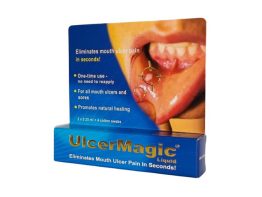Many of us have experienced the discomfort of a mouth sore, but not all sores are the same. Though canker and cold sores might appear similar at first glance, they are distinct conditions with unique causes, symptoms, and treatments. Understanding the differences between them is essential for effective management and prevention. This post will delve into the nuances of canker and cold sores, offering comprehensive insights to help you better understand these common oral health issues.
What are Canker Sores (Aphthous Ulcers)?
Canker sores, medically known as aphthous ulcers, are small, shallow lesions that develop on the soft tissues inside the mouth or at the base of the gums. They are typically oval or round with a white or yellow center and a red border. Unlike cold sores, canker sores do not occur on the surface of your lips and are not contagious. They can make eating and talking uncomfortable but usually heal on their own within one to two weeks.

What are Cold Sores (Fever Blisters)?
Cold sores, also known as fever blisters, are clusters of tiny, fluid-filled blisters that appear on and around the lips. They are caused by the herpes simplex virus (HSV-1) and are highly contagious. Cold sores often start with a tingling or burning sensation before blisters form. After the blisters break, a crust forms over the resulting sore, which eventually heals without scarring. The entire process typically lasts two to four weeks.

Causes of Canker Sores
The exact cause of canker sores remains unknown, but several factors are believed to trigger or exacerbate them:
- Stress and Hormonal Changes: Emotional stress and hormonal fluctuations, such as those during menstruation, can contribute to the development of canker sores.
- Injury to the Mouth: Minor injuries from dental work, aggressive brushing, or accidental cheek biting can lead to ulcers.
- Nutritional Deficiencies: Lack of essential nutrients like vitamin B12, zinc, folic acid, and iron may increase susceptibility.
- Food Sensitivities: Spicy, acidic, or abrasive foods can trigger or worsen sores.
- Immune System Issues: Certain autoimmune conditions may manifest as recurrent canker sores.
Causes of Cold Sores
Cold sores are caused exclusively by the herpes simplex virus type 1 (HSV-1). Once infected, the virus remains dormant in the body and can be reactivated by triggers such as:
- Illness or Fever: The term “fever blisters” refers to illnesses that can weaken the immune system and activate the virus.
- Sun Exposure: Ultraviolet rays can trigger outbreaks in some individuals.
- Stress: Emotional or physical stress can precipitate a recurrence.
- Hormonal Changes: Like canker sores, hormonal shifts can activate the virus.
- Injury or Fatigue: Physical injury to the area or general fatigue can also trigger cold sores.
Symptoms of Canker Sores
- Pain Level: Canker sores are often painful, especially when eating or speaking.
- Appearance: They are small, round, or oval with a white or yellow center and a red border.
- Location: Occur inside the mouth—on the tongue, cheeks or lips, at the base of the gums, or on the soft palate.
- Duration: Usually heal within 1-2 weeks without scarring.
- Accompanying Symptoms: In severe cases, fever, physical sluggishness, and swollen lymph nodes may occur.
Symptoms of Cold Sores
- Pain Level: Itching, burning, or tingling sensations may occur before blisters appear, and they can be painful once blisters form.
- Appearance: Clusters of tiny blisters filled with clear fluid; after bursting, they crust over.
- Location: Typically appears on or around the lips but can also occur on the nose, cheeks, or inside the mouth.
- Duration: Heal within 2-4 weeks, sometimes leaving a slight scar.
- Accompanying Symptoms include fever, sore throat, swollen lymph nodes, and general malaise, especially during the first outbreak.
Contagiousness of Canker Sores
Canker sores are not contagious. They cannot be spread through sharing utensils, kissing, or any other form of direct contact. They are a result of internal factors and individual predispositions.
Contagiousness of Cold Sores
Cold sores are highly contagious, especially when blisters are present. The virus can spread through:
- Direct Contact: Kissing or skin-to-skin contact.
- Shared Items: Utensils, lip balm, razors, or towels.
- Asymptomatic Shedding: The virus can be transmitted even when sores are not visible.
Treatment Options for Canker Sores
- Over-the-counter remedies: Antimicrobial mouthwashes, topical pastes containing benzocaine, protective coatings, and products like UlcerMagic can alleviate discomfort. UlcerMagic provides instant relief with a one-time application, creating a protective barrier that helps speed up healing and reduce pain.
- Home Remedies: Rinsing with salt water or baking soda may promote healing.
- Prescription Medications: A doctor may prescribe corticosteroid ointments or oral medications in severe cases.
Treatment Options for Cold Sores
- Antiviral Medications: Topical creams like acyclovir can reduce healing time and alleviate symptoms.
- Oral Antivirals: Prescription pills may be necessary for severe or frequent outbreaks.
- Over-the-Counter Options: Docosanol cream can help shorten healing time.
- Home Care: Applying a cold compress can relieve discomfort.
Prevention Tips for Canker Sores
- Maintain Oral Hygiene: Use a soft-bristled toothbrush and avoid toothpaste containing sodium lauryl sulfate.
- Dietary Adjustments: Avoid foods that irritate your mouth, such as spicy or acidic items.
- Nutritional Supplements: Ensure adequate intake of essential vitamins and minerals.
- Stress Management: Practice relaxation techniques like meditation or yoga.
- Avoid Mouth Trauma: Be cautious when chewing and consider protective gear during sports.
Prevention Tips for Cold Sores
- Avoid Triggers: Use lip balm with SPF to protect against sun exposure; manage stress effectively.
- Healthy Lifestyle: Adequate sleep, balanced diet, and regular exercise boost the immune system.
- Hygiene Practices: Don’t share personal items and wash hands frequently.
- Antiviral Prophylaxis: A doctor may prescribe antiviral medication as a preventive measure for frequent outbreaks.
- Awareness: Be mindful of early symptoms (tingling or itching) so treatment can be started promptly.
How do I know if I have a mouth ulcer or a cold sore?
While mouth ulcers and cold sores can feel similar, they are different:
- Mouth Ulcers: Appear inside the mouth, such as on the cheeks, gums, or tongue. A virus does not cause them, and they are not contagious. Mouth ulcers often occur due to stress, trauma (like biting the inside of your cheek), or dietary deficiencies.
- Cold Sores typically appear outside the mouth, on the lips, or around the edges. They are caused by the herpes simplex virus (HSV-1), making them highly contagious. They often start with tingling or burning before small blisters form, which eventually burst and crust over.
If you’re unsure, check where the sore is located and whether it’s accompanied by tingling, which is more common with cold sores.
| Feature | Canker Sores(Ulcers) | Cold Sores (Herpes) |
| Cause | Injuries, Braces, Dentures, Bites, Stress, Hormonal Changes | Herpes Simplex Virus (HSV-1) |
| Location | inside the mouth (cheeks, gums, tongue) | Around the lips, outside the mouth |
| Appearance | Small, round, white/yellow with red edges | Blisters filled with clear fluid |
| Contagious | No | Yes, spread through direct contact |
| Symptoms | Painful, disrupt eating and speaking | Tingling, itching, followed by blisters |
| Healing Time | 7-10 days | 10-14 days |
| Treatment | Debriding agents like UlcerMagic | Painful, disrupts eating and speaking |
Conclusion
Understanding the differences between canker and cold sores is vital for effective treatment and prevention. While canker sores are non-contagious ulcers with unclear origins, cold sores are contagious blisters caused by the herpes simplex virus. Recognizing the symptoms and triggers can help manage discomfort and reduce recurrence. If you experience persistent or severe symptoms, it’s essential to consult a healthcare provider for personalized advice and treatment options. Your oral health is crucial to your overall well-being—don’t hesitate to seek professional guidance when needed.






